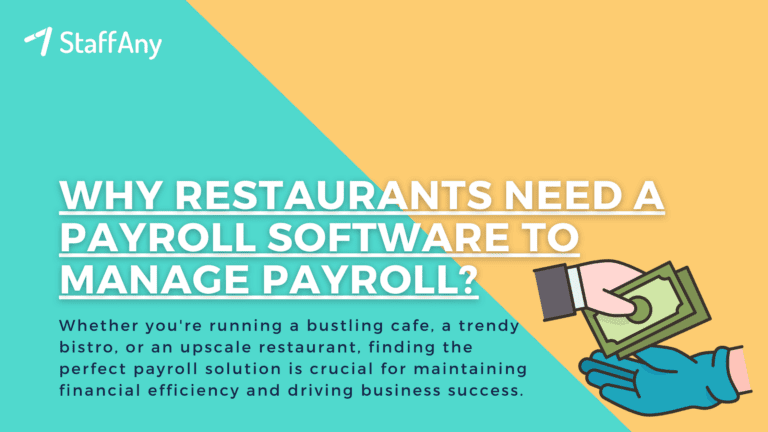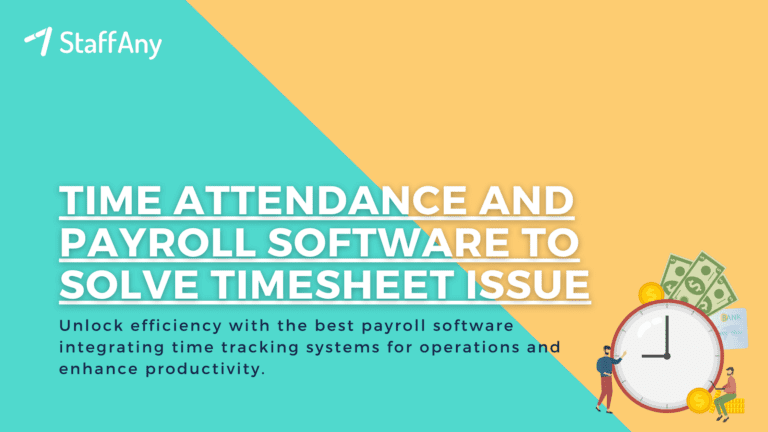In Malaysia’s vibrant and diverse landscape, foreign workers drive economic growth and development. As these individuals contribute their skills and labour to various industries, it’s crucial to delve into the intricacies of the tax regulations that apply to them.
In this article, we will provide a comprehensive guide to foreign worker tax in Malaysia for the year 2023, shedding light on the responsibilities of employers and the distinctions between foreigners and non-residents. Let’s get started!
What is the Foreign Worker Tax in Malaysia?

The Malaysian tax year commences on the 1st of January and concludes on the 31st of December. Notably, the tax regime is distinguished by its application to residents and non-residents, each subject to distinctive tax rates and parameters.
Non-residents face a fixed tax rate of 30%, while residents encounter a progressive tax structure from 0% to 30%, contingent on their income bracket. On average, resident workers commonly encounter a tax rate of 14%, making it a pivotal consideration for employers and employees.
For certain establishments, the enterprise assumes the tax burden on its personnel’s behalf, whereas alternative businesses necessitate their workers to fulfil the tax obligations autonomously. Noteworthy is the prescribed fixed monthly fee for non-residents, designated as the SOCSO (Social Security Organization) fee, which amounts to 49.4 Malaysian Ringgit (RM) per month. Analogous to a national insurance fee, this provision safeguards non-resident employees.
Initiating employment within Malaysia mandates registering employees with a unique tax identification number. To effectuate this process, the following particulars from the employees are requisite:
- A copy of the most recent salary statement (EA/EC form) or the latest salary slip.
- A copy of identification documentation.
- A copy of the marriage certification, if pertinent.
What Do Employers Need to Consider When Paying Income Tax?
As we unravel the complexities of foreign worker tax in Malaysia, employers bear important responsibilities tied to income tax management. These responsibilities are closely linked to mandatory contributions that are vital in fostering a balanced financial environment for employers and employees.
1. Monthly Tax Deduction (MTD)
Employers must first remember the Monthly Tax Deduction (MTD), often called Potongan Cukai Bulanan (PCB). This means taking a small part of an employee’s salary immediately to cover income taxes. Employers are responsible for sending this tax money to the Inland Revenue Board of Malaysia (IRBM) for the employee. The deadline for this remittance is set on or before the 15th of the ensuing month.
2. Social Security Organisation (SOCSO)
In Malaysia, the Social Security Organisation (SOCSO) is like a safety net for employees’ finances, which safeguards the financial well-being of employees through a comprehensive framework. This structure encompasses the Employment Injury Insurance Scheme and the Invalidity Pension Scheme, enshrining the welfare of Malaysians.
Notably, SOCSO contributions are a binding obligation for all employees, including Malaysian citizens, permanent residents, and foreign workers. Employers are responsible for arranging these monthly contributions for each eligible employee.
Simultaneously, employees have their contributions deducted from their wages, following the guidelines outlined in the Employees’ Social Security Act (1969). These contribution rates are divided based on age and income, showcasing a detailed approach to ensuring social security benefits.
Read more: Understanding the SOCSO Contribution Rate
3. Employees Provident Fund (EPF)
The Employees Provident Fund (EPF), an instrumental government fund that fosters Malaysian financial security, manages the fiscal landscape of retirement planning in Malaysia. While limited to citizens and permanent residents, EPF payments are also optionally extended to foreign workers.
In this dynamic, employers undertake the task of deducting EPF payments from the employee’s salary and subsequently channelling them to the EPF on the employee’s behalf. In parallel, employers exercise a distinctive responsibility by contributing to the EPF in alignment with the employees’ prospects.
4. Employment Insurance Scheme (EIS)
The Employment Insurance Scheme (EIS) is a distinctive contribution framework embedded within the Malaysian employment landscape. Most Malaysian citizens and permanent residents fall under the purview of EIS, fostering a financial safety net for these individuals. EIS contributions, which aid workers in job loss, extend to those under 57 with certain exceptions.
The contribution percentages for the EIS are established at 0.4% of the employee’s estimated monthly salary. Of this, 0.2% will be covered by the employer, while the remaining 0.2% will be subtracted from the employee’s monthly earnings. These contribution rates are capped, applying to a presumed monthly salary of RM4000.
The Difference Between a Foreigner and a Non-Resident
In Malaysia’s intricate payroll landscape, discerning the disparities between a foreigner and a non-resident is paramount. These distinctions reverberate through pivotal facets, such as:
1. Social Security Organisation (SOCSO)
The differentiation between foreigners and non-residents extends to their Social Security Organisation (SOCSO) involvement. Foreign employees find themselves entangled within the framework of the Employment Injury Scheme. In this configuration, only the employer shoulders the responsibility for contributions. This financial commitment assumes centrality, and to facilitate the contributions, the employee’s SSFW number becomes pivotal.
2. Employees Provident Fund (EPF)
Foreign employees are not required to make personal financial contributions to the Employees Provident Fund (EPF), an initiative to secure their financial future. Nevertheless, they possess the discretion to opt for voluntary contributions to the fund. It’s important to underscore that this choice remains independent of their tax residency status.
3. Employment Insurance Scheme (EIS)
The nature of the Employment Insurance Scheme (EIS) exhibits a unique character when examining its application to foreign employees. Within the context of the EIS, foreign employees enjoy a distinct advantage. Unlike others, they are not required to make contributions to this scheme. The EIS safeguards individuals facing job loss, yet foreign employees are exempt from the obligation to contribute to it.
4. Human Resources Development Fund (HRDF)
Foreign workers are exempt from contributing to the Human Resources Development Fund (HRDF). This fund primarily supports training and development initiatives, typically requiring contributions from both Malaysian employees and companies. Importantly, foreign employees are relieved from the obligation of contributing to this fund, and they are not considered when calculating the fund’s contribution amounts for companies.
Read more: Basic Salary in Malaysia and Its Regulations
As the intricate web of foreign worker tax in Malaysia and payroll obligations unfurls, it becomes clear that staying on top of these nuances is essential for a harmonious workplace. To bridge the gap between these complexities and seamless operations, consider a powerful solution like StaffAny, a cutting-edge roster making app that streamlines operations and HR processes. Contact us to learn more!











